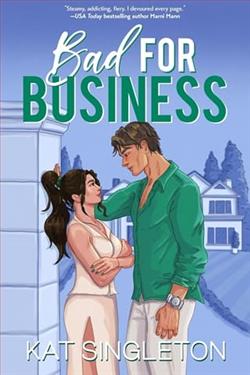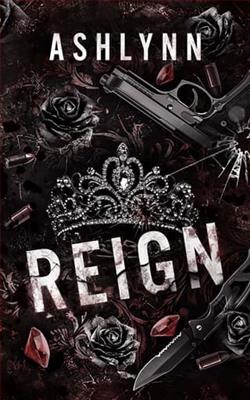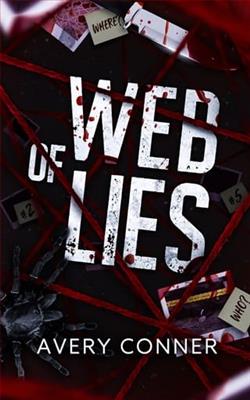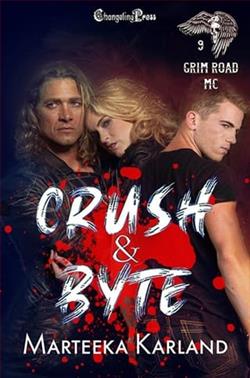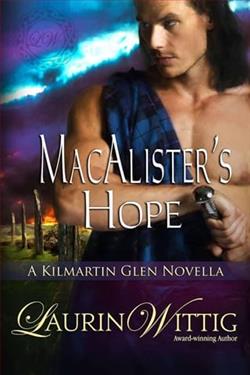Page 29 of Lovely War
I find a ball. After dragging a spare light over so I can see, I take a few clumsy dribbles and pass the ball back and forth from one hand to the other, familiarizing myself with the weight of it. I can feel him watching me, but I don’t look at him. I look at the basket.
It’s been a long time since I’ve done this. My first attempt is off, but it takes a lucky clanging bounce off the rim before dropping through the net like a fingertip against silk. An unsportsmanlike yelp escapes my mouth, and he grabs his head with both hands. “That was a hideous shot. That shouldn’t even count.”
I can feel how wide my grin is, all teeth, gloating. “Sportsmanship, Callahan. Don’t be a sore loser.” I clear my throat and modulate my voice, assuming a more professional tone. “Now, what’s your role with the team? And with eachquestion, restate it so I can cut my voice out. It won’t feel natural at first, but it’ll sound more natural.”
“Nothing about this feels natural,” he mutters.
I make a get-on-with-it motion with my hands.
He exhales and looks at the camera. His face slides into a neutral expression. I’d prefer something a bit warmer, but I’ll take what I can get. “My role is to compile and analyze data about our team and our opponents, to make recommendations to improve the team’s performance.”
“Good.” I kick off my ankle boots before returning to the free throw line. They have a heel, and I have no interest in making this game harder than it needs to be.
The second shot falls straight through the hoop, barely touching the net.
I raise my arms in triumph. “You can’t tell me that one wasn’t pretty.”
He shakes his head. “Somehow I’ve been conned.”
I ask him about easy topics: his favorite basketball memory, a fun fact about Coach Thomas, what superpower he’d want to have on the court. Eventually I overshoot one, and the ball hits the back of the rim and sails out of bounds.
“Finally.” He crosses his arms. “Okay, please tell me why a third-grade basketball dropout is shooting eighty percent from the free throw line?”
“Because beating you is great motivation.”
“Just in this game, or is that your general life strategy?”
I pretend to chuck the ball at him. “My dad always worked late during the season. And my mom was never a disciplinarian, so she did the whole ‘Wait till your father gets home’ thing. My dad parented like he coached. He didn’t know how to do it any other way. When he walked in the door andmy mom asked him to deal with me, he took me out to the driveway until I made twenty-five in a row.”
We’d stand in front of the garage in the dark, the floodlights illuminating the hoop, me huffing about how unfair Mom was being or how misunderstood I felt. It wasn’t the same for Kat. She and Dad butted heads, and Mom was the one she turned to. With me, Dad would listen quietly as I ranted and missed shots until he figured out what I needed: tough love to help me pull my head out of my ass, or a chance to vent. Sometimes it was enough to spend twenty minutesnottalking about whatever was upsetting me, so we reviewed proper free throw mechanics instead.
I look down at the ball in my hands, my heart heavy. “He could never resist correcting my form.”
“Well, you’re pretty good at free throws. You must’ve gotten in trouble a lot.”
A laugh bubbles out of me, catching me by surprise. “Look who’s suddenly full of jokes,” I say. I make another shot. “Who’s your role model and why?”
“My role model is, um”—he hesitates for a millisecond, his eyes flicking over to me—“My role model is Brent Maynard, my coach when I played here at Ardwyn. He’s a basketball genius and an incredible person. He taught me so much about the game and also gave me a lot of guidance and support off the court. He’s like family.” He takes a breath as if preparing to say more.
I study my list of questions, trying to maintain a look of clinical detachment, but my chest is tight and my heartbeat has reached my skull, where it’s pounding aggressively. “Okay, that’s enough, it’ll be clear to everyone that you want to marry him.” I’m going to cut this whole answer anyway.
I miss the next shot. He hums contemplatively and asks, “What’s your most embarrassing basketball-related story?”
Thank god for a chance to change the subject. “I once got ejected from one of my dad’s games,” I offer.
He barks out a laugh. “No way. Why?”
“There was a guy sitting behind me, mouthing off.” I jog over to retrieve the ball. “Calling my dad overrated, accusing him of recruiting violations—total bullshit. I know criticism comes with the territory, but the guy got personal. And he kept yapping about how we should run a full-court press. He had no idea what he was talking about.”
“So you did what?” Ben asks.
“I corrected his misconceptions.” I shrug. “And I told him his mustache was ugly. In what some might call an ‘elevated voice.’ Some did call it that, in fact. The referees. They said I was causing a disturbance and had security remove me. The other team’s student section booed me on my way out.”
Ben’s posture is loose as he rests his elbows on his knees and shakes his head. He’s amused enough to forget the camera for now. “Fans are brutal. It must’ve been hard when you were in high school, with your dad having a high-profile coaching job. Hearing people pick apart his decisions.”
“Sure,” I chirp. “But this was three years ago.” Dad’s final season, not that any of us knew at the time. His last game was a completely unremarkable state quarterfinal loss with no fanfare. It’s not fair that he didn’t get to retire properly.
Another surprised laugh from Ben. “You’re not actually embarrassed by this story, are you?”








